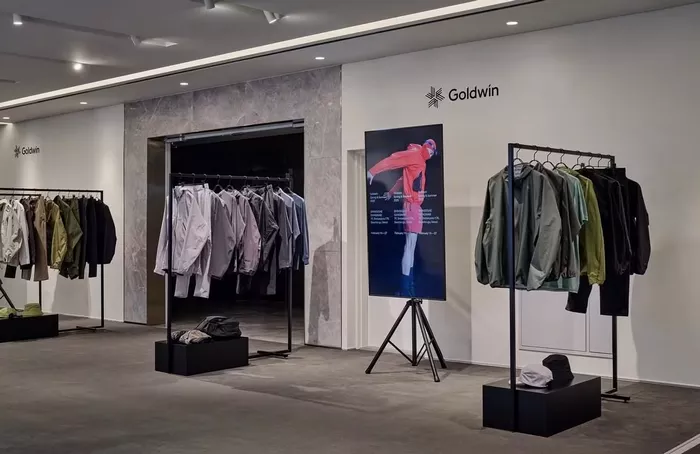Japanese fashion brands are rapidly making their way into the South Korean market, riding a renewed wave of interest among the country’s younger generation. After a slowdown caused by the ‘No Japan’ movement and the COVID-19 pandemic, enthusiasm for Japanese culture and fashion is making a strong comeback, particularly among Gen Z and Millennials.
One standout example is the popular Japanese select shop BEAMS, which has triggered a retail phenomenon known as the “open run”—a rush of shoppers lining up early before store openings. Brought into South Korea by fashion company FGF, known for brands like CP Company and Stone Island, BEAMS opened its first pop-up store at Lotte Avenue El Jamsil on April 4. Originating in 1976 in Harajuku, Tokyo, BEAMS now runs 170 stores globally and is well-known for spreading styles like Americaji (American casual) and preppy fashion.
On its opening day in Seoul, around 300 customers queued as early as 7 a.m. Vice President Kasey Endo of BEAMS commented, “We are currently discussing future store operations with our Korean partner based on the response to this pop-up store.”
Another significant entry is Goldwin, a Japanese outdoor apparel brand established in 1950. Originally entering Korea through a licensing deal with Youngone Holdings—which also manages The North Face in Asia—Goldwin has now decided to operate directly. After ending its license contract on January 1, it founded Goldwin Korea, and is now running pop-up stores at Shinsegae Department Store Gangnam and Hyundai Department Store Pangyo.
In the latter half of last year, Chris FNC obtained exclusive rights from TSI Holdings to introduce the Japanese outdoor brand AND WANDER to Korea. Previously focused on golf wear, Chris FNC aims to expand its fashion portfolio through this move.
Meanwhile, Highlight Brands introduced the Japanese watch brand KOUE KYOTO from Tokyo, first opening a pop-up in Seongsu in February and later organizing a private showcase at a five-star hotel.
The movement doesn’t stop there. Tokyo’s prominent fashion retailer Studious opened its first South Korean branch last month near Dosan Park in Apgujeong-dong, Gangnam. Furthermore, Japanese select shop Bshop is preparing to launch its flagship Seoul location next month.
According to the Korea Customs Service, Japanese clothing imports into South Korea hit $114.33 million (₩162.77 billion) in 2023—a 69% increase compared to 2020.
Industry insiders attribute this surge to the growing number of MZ generation travelers to Japan, spurred by the weak yen, which has enhanced awareness and access to local Japanese fashion brands. Popular names such as Comme des Garçons, Issey Miyake (Pleats Please, Bao Bao), Uniqlo, Muji, Asics, and Onitsuka Tiger have contributed to a booming interest in newer labels.
This cross-cultural exchange is seen as part of a larger trend of borderless consumption, where national identity matters less than product quality and uniqueness. Industry trends show K-pop, Korean fashion, and beauty brands gaining popularity in Japan, while Japanese fashion and music simultaneously find eager fans in South Korea.
In response, Korean fashion companies are ramping up their efforts to introduce and promote a diverse array of Japanese labels. The select shop BEAKER, run by Samsung C&T’s fashion division, features indie Japanese brands like Captain Sunshine, Orari, and Komori. Notably, Captain Sunshine’s sales jumped 33% last year, while Orslow, sold by Shift Z, enjoyed over 200% sales growth.
Another key player, EQL, a select shop managed by Handsome, showcases over 50 Japanese fashion and accessory brands, including Younger Song and Nick Gear. Sales of Japanese brands at EQL tripled in the first two months of 2024 compared to the same period in 2023. A Handsome representative shared, “We are continually discovering and introducing Japanese brands that are resonating more and more with local consumers.”
In summary, with consumer tastes shifting and cultural barriers fading, South Korea is proving to be fertile ground for Japanese fashion. As brand interest soars and companies strategically position themselves in the market, the fusion of Korean and Japanese fashion cultures appears not just inevitable—but already well underway.
Related Topics
- Anne Hathaway’s Flawless NYFW Look Reignites Beauty Standards Debate in 2025
- Regatta Confirms Closure of Dundee Store Amid Wave of UK High Street Retail Shutdowns
- Maiden Cricket Launches Ambassador Programme to Empower Girls and Women in Sport

